27 Nov 2018
AmigaOS 3.0 was the original operating system version that my Amiga 1200 shipped with back in 1992. In 1994, just before its bankruptcy, Commodore released an updated version: AmigaOS 3.1.
One of the first things I did when I dusted off my Amiga 1200 in 2015 was to install AmigaOS 3.1 Kickstart ROMs. In the years after Commodore went under, several updates such as AmigaOS 3.5 and AmigaOS 3.9 were released.
Now, in 2018, AmigaOS 3.1.4 has been released. As I was never really happy with AmigaOS 3.9, I jumped at the opportunity to use this new, cleaned up version of AmigaOS 3.1 in its stead.
I ordered a set of AmigaOS 3.1.4 Kickstart ROMs and Workbench floppy disks from Alinea Computer. Due to copyright and license issues I had to wait a while, but eventually my order arrived.
Here is a photo of the AmigaOS 3.1.4 Kickstart ROMs (with my license key removed):
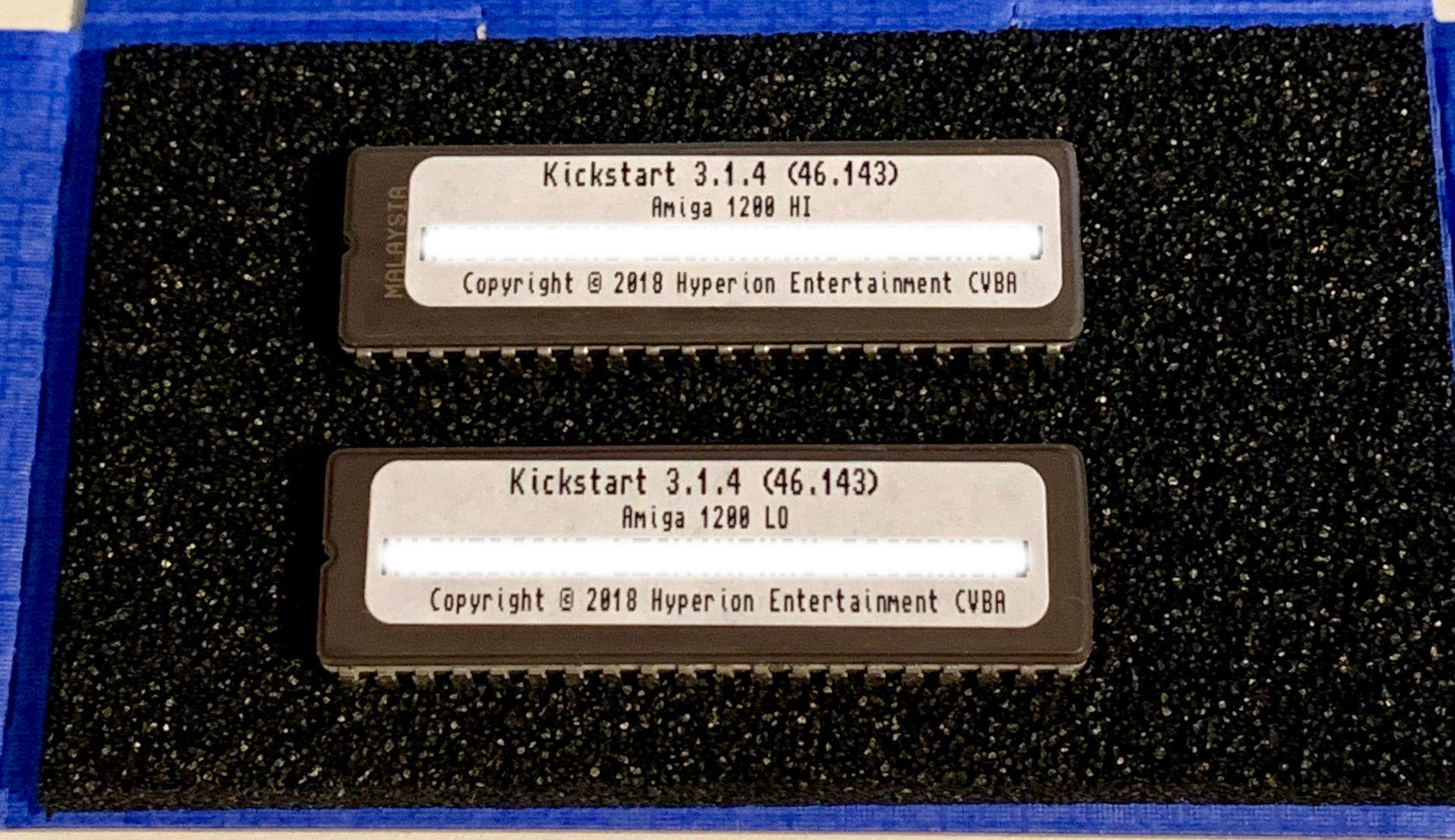
And here is a photo of the AmigaOS 3.1.4 floppy disks:
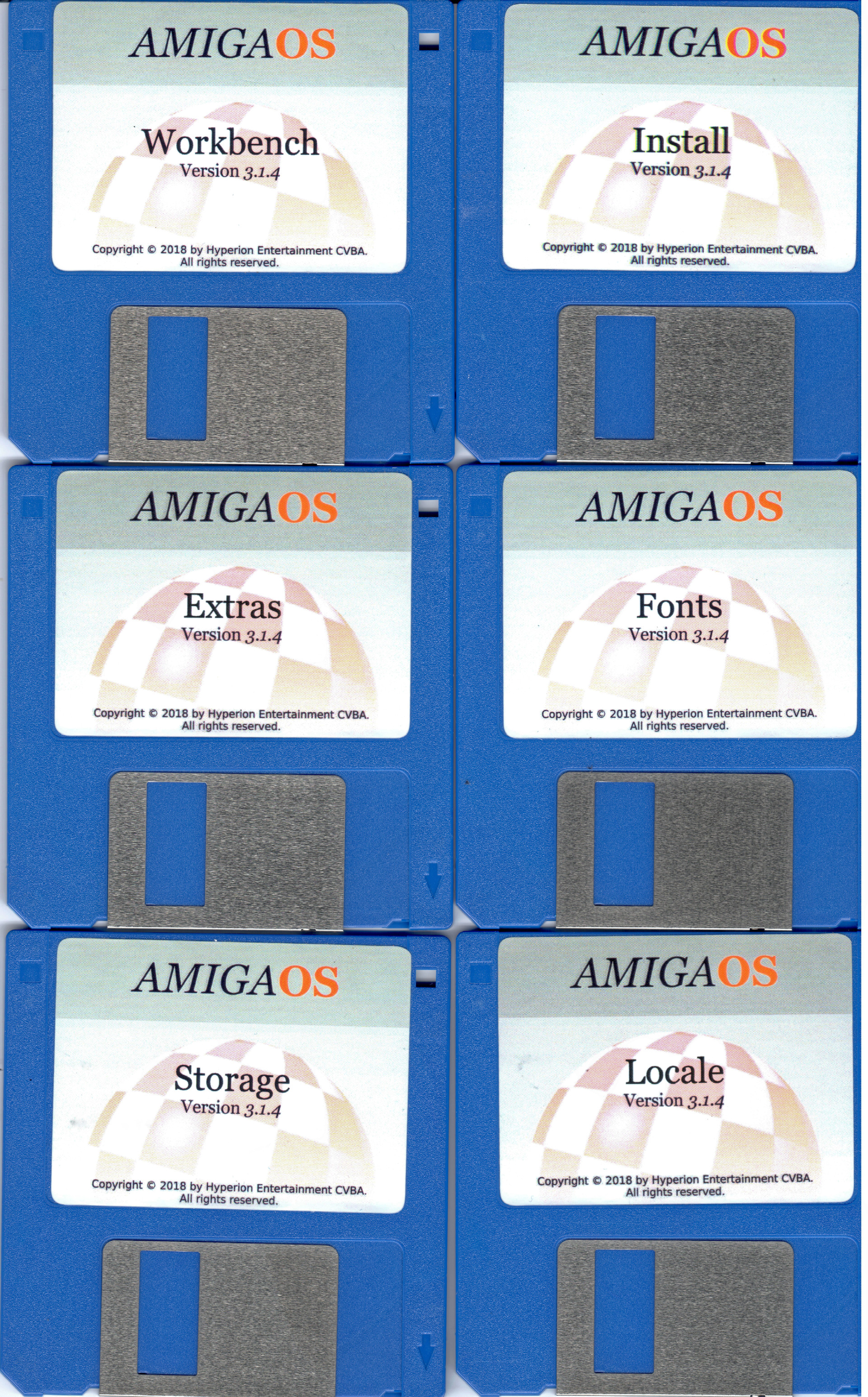
Unfortunately, the Kickstart ROMs I received do not work. Alinea Computer has promised to send replacements.
In the meantime, I decided to make a fresh install of AmigaOS 3.1.4 using the new floppy disks and the old AmigaOS 3.1 Kickstart ROMs. This is possible because of a Kickstart 3.1.4 image that gets installed and is loaded into memory during system startup.
Another unfortunate complication was the fact that one of the AmigaOS 3.1.4 floppy disks has read errors. I used my USB floppy emulator with AmigaOS 3.1.4 floppy disk images (that I have access to thanks to my license) to perform the installation.
I am now in the process of installing the games I like to play using WHDLoad in an emulated Amiga 1200 and copy the game directories from there to my real Amiga 1200 by mounting its harddrive under Linux.
Here are a couple of screenshots of a vanilla AmigaOS 3.1.4 install:
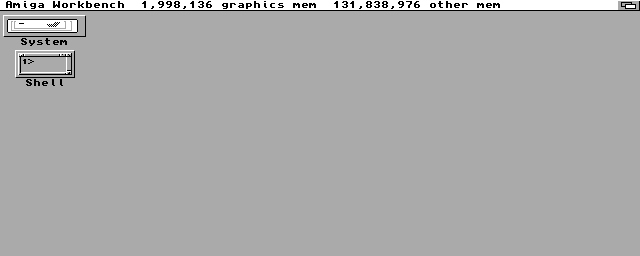
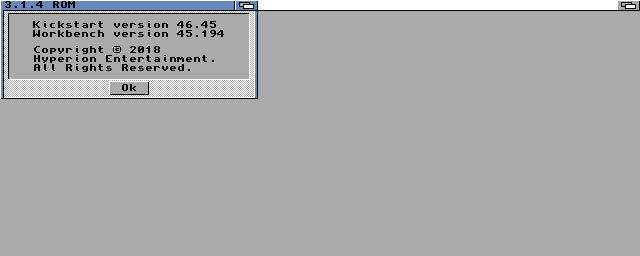
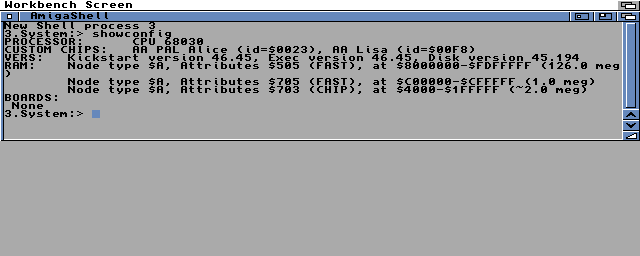
29 Mar 2018
There are some news with regard to Docker-ized cross-compilation and emulation for Amiga software development.
Stefan “Bebbo” Franke has abandoned his fork of Krystian Bacławski’s AmigaOS cross compiler toolchain. Consequently, I no longer maintain the Dockerfile for this toolchain.
But do not worry: Stefan still maintains the GNU Compiler Collection, along with binutils and other useful tools, for AmigaOS cross-development on Linux. His new project can be found here and my Dockerfile for it is available here.
29 Oct 2017
Today I attended the Amiga 32 event in Neuss, Germany. This was a follow-up to the great Amiga 30 event from two years ago.
19 Aug 2017
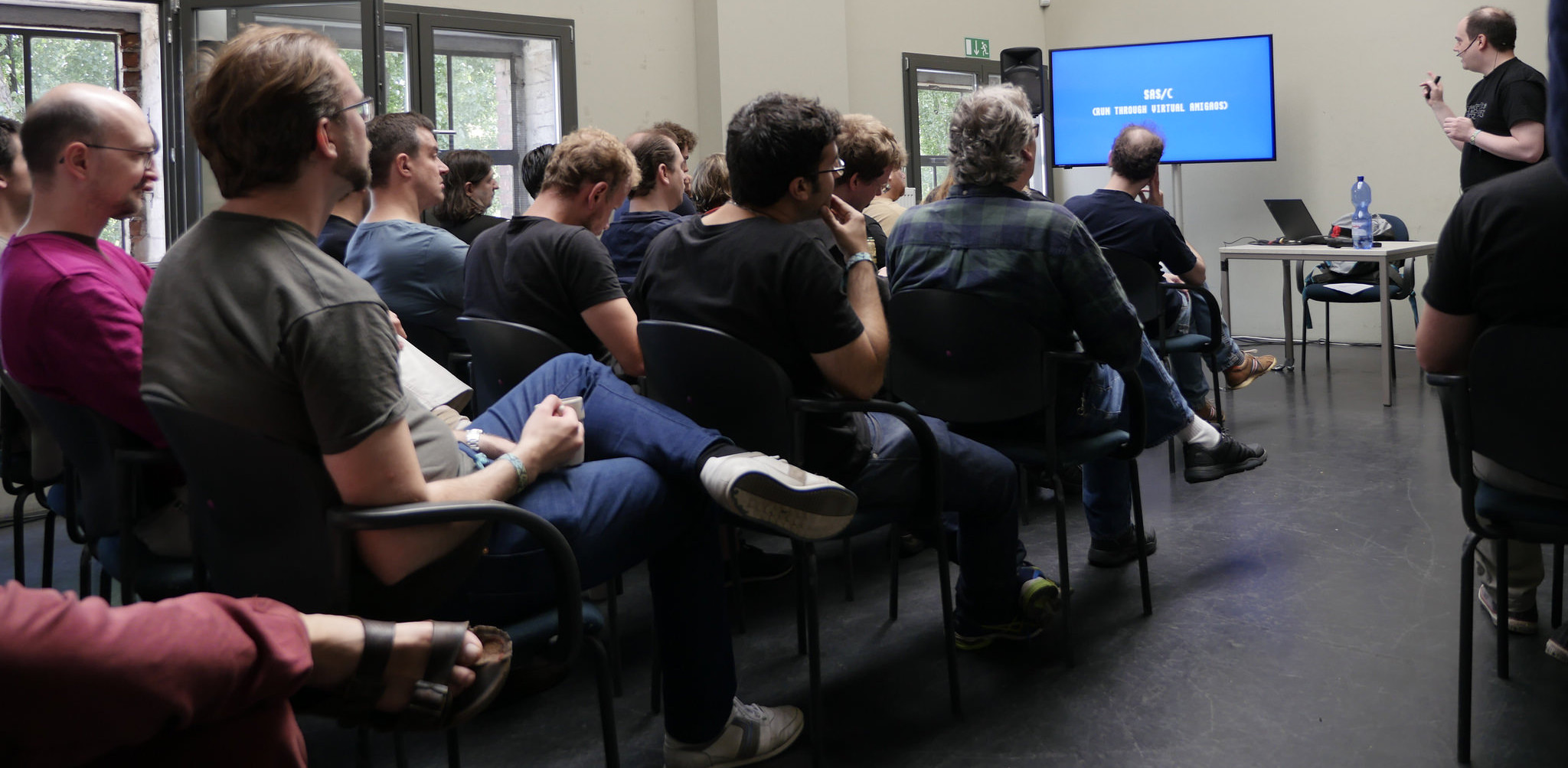
Today I attended the Evoke 2017 demoparty in Cologne, Germany. The organizers of Evoke had asked me to present a seminar on Docker-ized cross-compilation and emulation for Amiga software development at this year’s event.
You can find the material that I used for my presentation here.
04 Aug 2017
Until yesterday, I ignored the Vampire line of accelerator / expansion cards for classic Amiga computers because they had no offering for my Amiga 1200. But yesterday the Apollo Team announced the Vampire V4. And this new model will also be available for the Amiga 1200. So here are my thoughts on the Vampire V4.
While the Vampire V4 for Amiga 1200, just like the previous Vampire products for other classic Amiga computers before it, is a card that is put into a classic Amiga 1200 it does not really do what such cards normally do. Instead of just putting a more powerful CPU (along with more RAM) onto the computer’s bus it basically replaces most (if not all) of the computer’s hardware.
Using FPGA chip(s), the Vampire V4 implements a Motorola 68000 family CPU, the 68080, that never existed as well as a graphics chipset named SAGA that is compatible with AGA. As far as I understand, when a Vampire board is used then basically no original chip is used. Against this background, it should come as no surprise that a standalone version of Vampire V4 will be offered that requires neither an original mainboard nor original chips.
The approach taken by Jens Schönfeld for the Commodore A1200 Reloaded makes more sense to me. I already wrote about this project earlier, for instance here and here. The Commodore A1200 Reloaded will be a state-of-the-art mainboard for the classic Amiga 1200 hardware with a couple of useful enhancements such as modern connectors and support for RTG.






